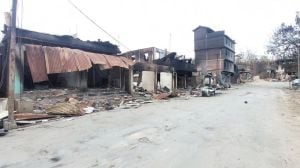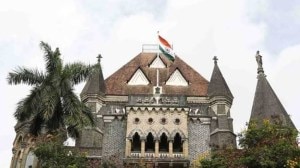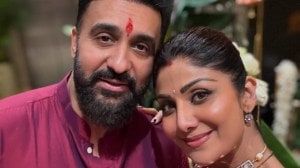The republic146;s children
While the spotlight was focussed on Republic Day celebrations in New Delhi and state capitals, a politician in the tribal heartland of Gujar...

While the spotlight was focussed on Republic Day celebrations in New Delhi and state capitals, a politician in the tribal heartland of Gujarat was making a speech to his 8216;teeny-totes8217; as he calls them, in remote Limkheda village of the Panchamahals district. It was a speech focussed on education. He asked parents not to disturb their children in residence. He pleaded with the kids to learn English. And he asked teachers to set tougher exams. No politics for once.
Bijal Damor, the politician in question sounds like Laloo Prasad Yadav when he speaks Hindi. But the similarity ends there. Apart from politics, his business is education. He runs six educational institutions from primary to the graduate level. One of them is a residential school.
But what8217;s so special about this, one may ask? The answer is that more than sixty per cent of students in Damor8217;s school are tribals from the hinterland and a majority of them are first generation school goers.
He elaborates on his vision: 8216;8216;Another Nav-Nirman movement is in the offing. You will see that in next 10 years. Tribals cannot be kept out of national mainstream any longer,8217;8217; he said. While the contours of his imagined Nav-Nirman are unclear, yet the results of his efforts are quite tremendous. Without any help, two Fifth Standard kids conducted the show, parade and drill, for about two hours in English and Hindi. They were not students of Doon School or Sanawar and no-one in their family had ever been educated yet the children8217;s confidence and their poise was extremely moving.
Encouraging qualified teachers to stay is not easy and Damor tries to encourage couples to come out to teach. Damor is also irritated that the state government has made English mandatory in the primary section and has raised the pass percentage from 35 to 40. He sees this as a conspiracy to keep the tribals down. The sight of a former minister begging parents not to disturb their children while classes are on and taking care that student get Basmati rice is certainly unlike the stereotype of a politician. As Damor8217;s 8216;teeny-totes8217; marched past the national flag in formations in Rani Jhansi division, Subhash House and Azad House, it was difficult to believe that these children had come from illiterate backgrounds.
Far away from the pomp of the military parade in New Delhi, the school going kids of Rathwa and Baria tribesmen, standing under the fluttering Tricolour, speaking eloquently on the Constitution of India and the freedom struggle made this a truly celebratory Republic Day.
- 01
- 02
- 03
- 04
- 05































